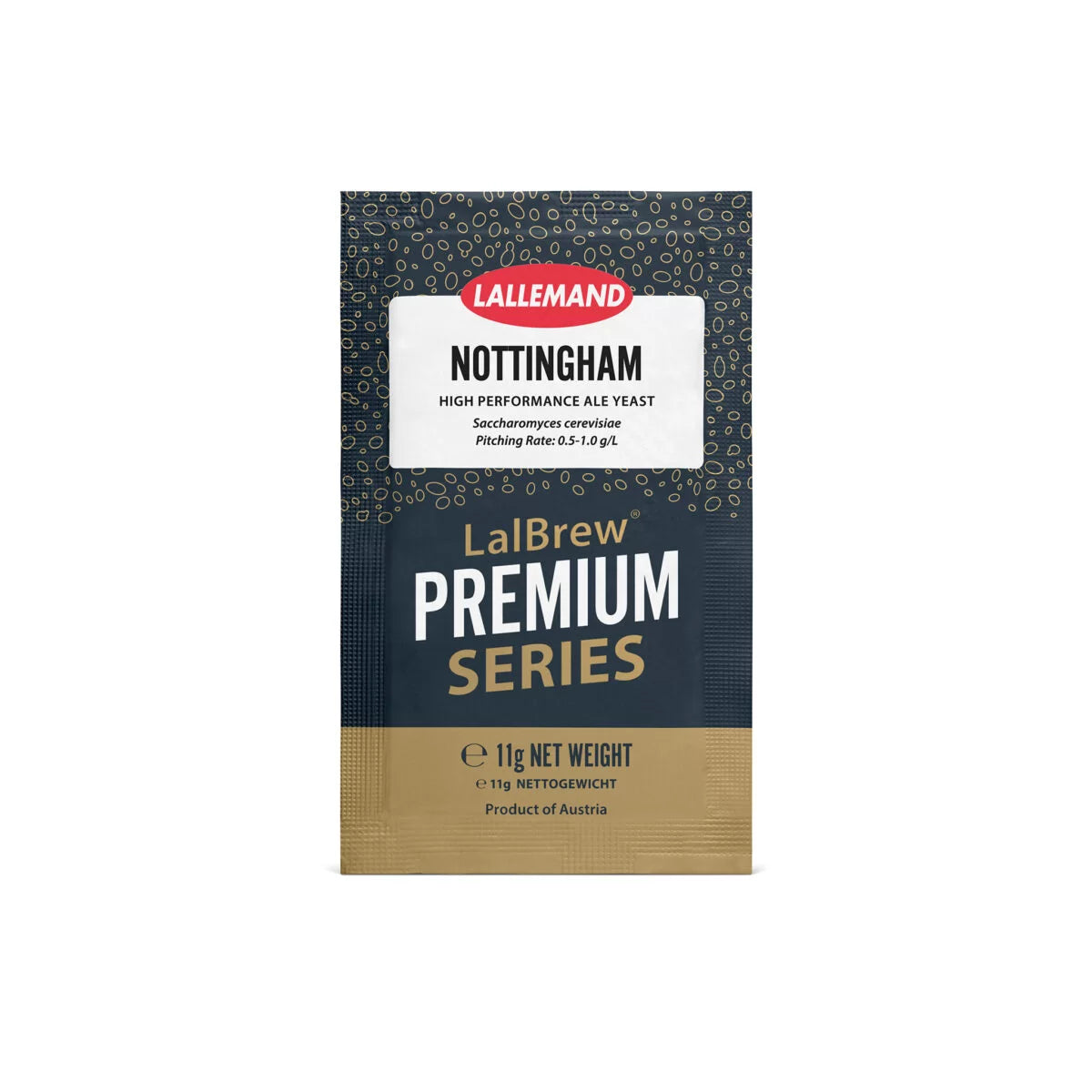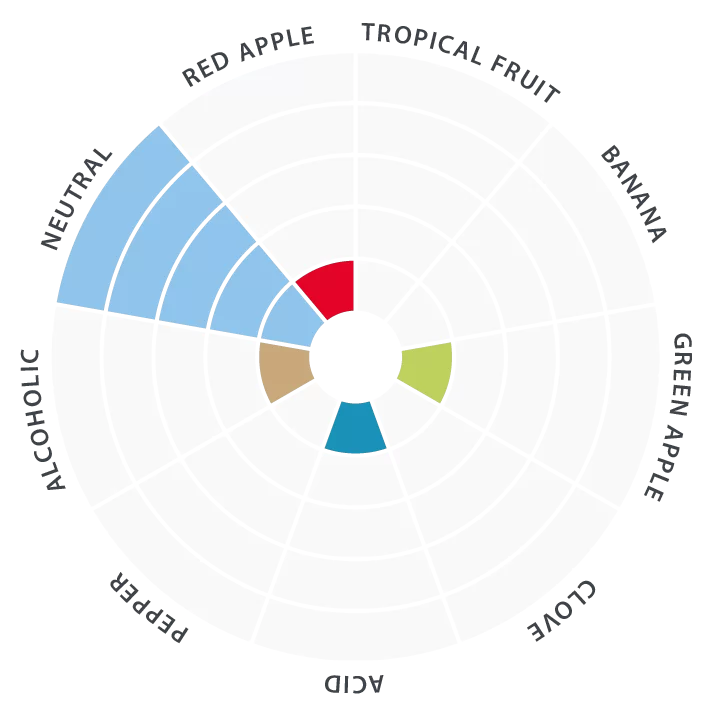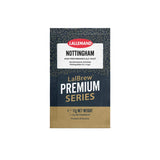



Lallemand Nottingham 11g
Description
LalBrew Nottingham™ is an English-style ale yeast selected for its high performance and versatility. Neutral flavor and consistent performance across diverse fermentation conditions make LalBrew Nottingham™ and ideal house strain for producing a wide variety of beer styles. Through moderate expression of β-glucosidase and β-lyase enzymes, LalBrew Nottingham™ can promote hop biotransformation and accentuate hop flavor and aroma. LalBrew Nottingham™ is one of the original Heritage Strains selected from the Lallemand Yeast Culture Collection when Lallemand Brewing was founded in 1992. Traditional styles brewed with this yeast include but are not limited to Pale Ales, Ambers, Porters, Stouts and Barleywines. In addition to these traditional styles, LalBrew Nottingham™ can be used to produce Golden Ale, Kölsch, Lager-style beers, IPA, and Imperial Stout, among many others. LalBrew Nottingham™ is a stress tolerant making it a good choice for high gravity, sours, re-starting stuck fermentations and other challenging fermentation conditions.
Quick facts
| Strain | Saccharomyces cerevisiae |
|---|---|
| Beer styles | American Amber Ale, American Barleywine, American Brown Ale, American IPA, American Pale Ale, American Stout, American Wheat, Baltic Porter, Belgian Blonde Ale, Belgian Dark Strong Ale, Belgian Golden Strong Ale, Belgian Pale Ale, Blonde Ale, Bohemian Pilsner, Brown Porter, California Common, Classic American Pilsner, Cream Ale, Dark American Lager, Doppelbock, Dortmunder Export, Dry Stout, Dusseldorf Altbier, Eisbock, English Barleywine, English Brown Ale, English IPA, Extra Special Bitter, Foreign Extra Stout, German Pilsner, Imperial IPA, Irish Red Ale, Kolsch, Maibock/Helles Bock, Mild, Munich Dunkel, Munich Helles, Oatmeal Stout, Oktoberfest/Marzen, Old Ale, Ordinary Bitter, Robust Porter, Roggen/Rye, Russian Imperial Stout, Schwarzbier, Scottish Ale, Session IPA, Special/Best Bitter, Strong Scotch Ale, Sweet Stout, Traditional Bock, Vienna Lager, Weizenbock, Witbier |
| Attenuation | 78-84% |
| Temperature range | 10 - 25°C (50 - 77°F) |
| Flocculation | High |
| Aroma | Slightly fruity, neutral |
| Alcohol tolerance | 14% ABV |
| Pitching rate | 50 - 100g/hL |
Shipping information
- Order before midday (mon - fri) for same day shipping
- Free Shipping for orders over £80 (DPD next day service)
- Discounted shipping for orders over £40
- Smaller items ship with royal mail from £2.90 (£1 for orders over £40)
Prices are calculated at the checkout. Please see our full shipping policy here.

Free next day delivery on orders over £80
Lallemand Nottingham 11g
- Related products
- Recently viewed


